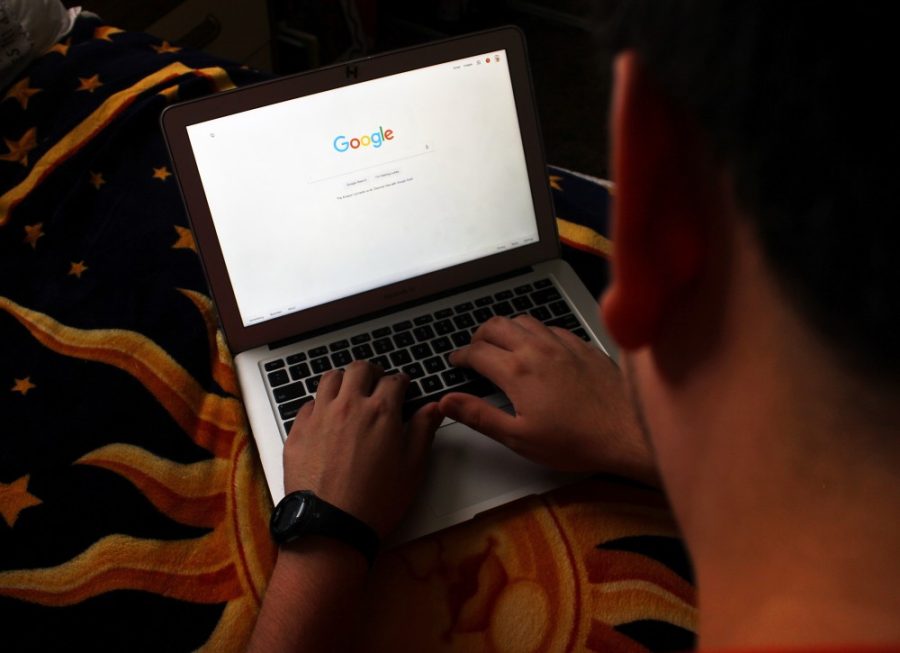With the Federal Communication Commission’s public comment period on net neutrality officially closed, the world now waits to see how the Trump administration will react to millions of people, as well as tech giants and digital rights advocates, demanding the internet remain open and free.
The internet, with all of its unlimited, nearly unfathomable potential, is far too powerful and vital to trust in the hands of a few corporations that already control so much of how information is accessed and used.
For months, everyone from the Electronic Frontier Foundation to John Oliver have been raising awareness on net neutrality, which, without getting too technical, essentially means that internet service providers like Verizon and Cox can’t charge more to promote certain content, block websites, etc.
The controversy stems back a few years. It involves a recategorization of internet regulation under the Obama administration, a lawsuit by Verizon against the government and the appointment of a new FCC head who is anti-regulation and, coincidentally enough, was once a lawyer for Verizon.
In other words, it’s a big mess. It boils down to whether the public wants private companies to have control over the internet and how it’s accessed, or whether the internet is regarded as a public utility, like water or telephones, that need government oversight.
Without that oversight, it’s easy to imagine a world where ISPs (internet service providers) block students from research materials they find offensive, news stories on topics that might be unfavorable to investors or completely shut out content from competitors altogether.
RELATED: Column: Life without a smart phone
Naysayers contend that would never happen, but in a dog-eat-dog tech world where proprietary information is protected with countless safeguards and corporate espionage is commonplace, only the truly naive believe that some companies wouldn’t do anything to increase profits.
Plus, if these huge corporations are already supporting an open internet, as many claim, there is no reason they should fear government oversight to ensure they are delivering the best available product to their customers at the best possible price.
According to a recent poll by Freedman Consulting, net neutrality enjoys more than 75 percent approval ratings from across the political spectrum, but ISPs have spent hundreds of millions lobbying for relaxed regulations, which they argue hurt investments and competition.
However, small and mid-sized ISPs argue there is already little competition, and here in Tucson customers know they don’t have many options when it comes to internet service. Letting big corporations write their own rules wouldn’t change that.
And about that hurt business? Comcast earned $2.3 billion in net profits in the last three months of 2016, a 16.5 percent bump from 2015, according to the company. Verizon said it had a decrease, but still made $4.5 billion in net profits and retained its top spot in the wireless market.
With large ISPs making billions in profits every year, the argument that they need less regulation in order to be profitable or spurn investment is downright laughable.
RELATED: Column: D2L server crashes impact UA’s online learning environment
The current rules governing net neutrality fall under the 1934 Communications Act, an era when technologies like the internet and wireless communication could not be foreseen by those writing the guidelines.
The ideal solution would be to draft completely new laws, with all parties taking a seat at the table and agreeing to rules that are workable to ISPs and tech companies while, most importantly, best serving the public.
But with the FCC hamstrung by the 2014 Supreme Court ruling and an ineffectual Congress currently unable to pass any sort of meaningful legislation, the onus lies with the FCC, for now, to determine how the internet will be governed.
FCC chair Ajit Pai should heed the call from millions of internet users, companies including Google, Twitter and Facebook, and free speech advocates around the country. Keep the current net neutrality rules in place, at least until a better solution can be reached.
If Pai allows ISPs to make their own rules on how the public can access information, he will open the gates for corporations to place profits ahead of the free flow of ideas, expression and knowledge. The internet is too important to allow this to happen
Follow Andrew Paxton on Twitter









